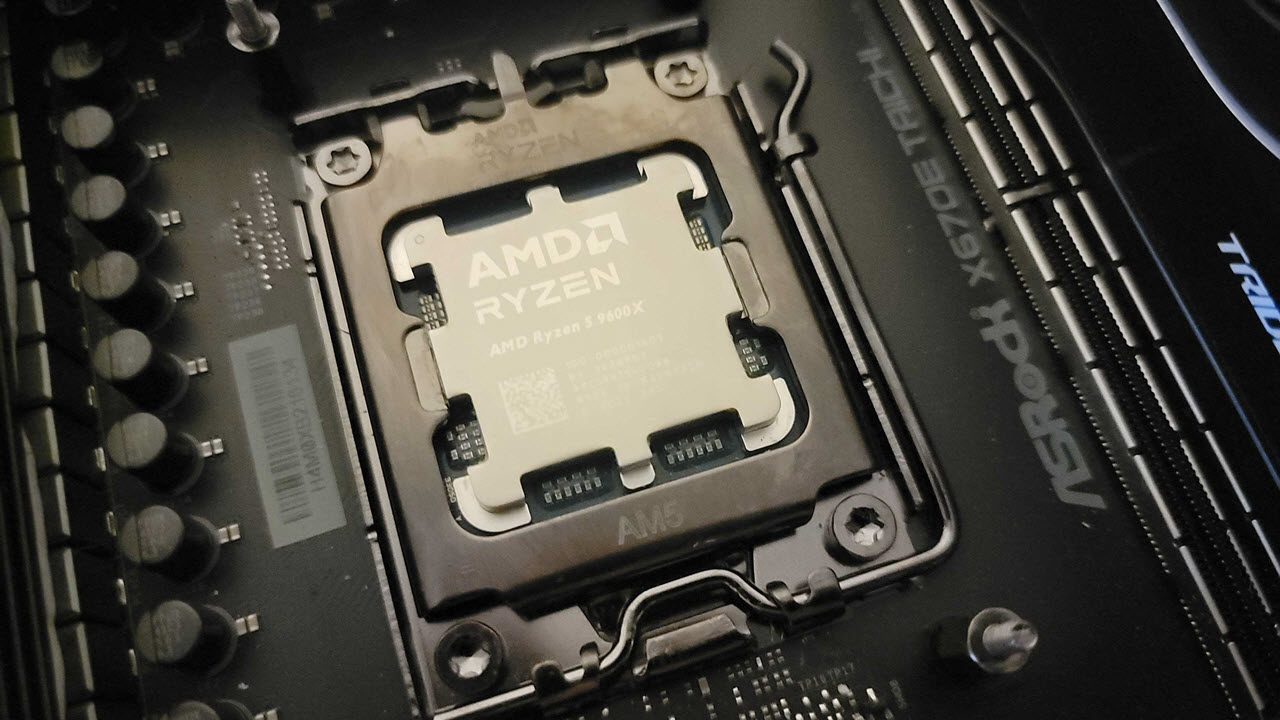MSI releases firmware with 105W TDP mode for Ryzen 5 9600X and Ryzen 7 9700X — multi-core performance boosted by up to 13%
The AGESA BIOS PI 1.2.0.1 is real and brings performance improvements.

MSI has officially released its newest BIOS update with AMD AGESA BIOS PI 1.2.0.1. This update allows users to increase the TDP of their Ryzen 5 9600X and Ryzen 7 9700X processors from 65W to 105W.
Those with Ryzen 5 9600X and Ryzen 7 9700X processors and a compatible X670E or B650 MSI motherboard (a complete list is available below) and are interested in the update should go to their motherboard's downloads page to download the new BIOS. If your MSI 600-series motherboard is not listed, an update will arrive in the next few weeks. Once downloaded, users can navigate to the "OC" tab in their BIOS, and the "TDP to 105W" mode will be found under CPU Settings; the boost will not be active by default.
It is important to note that the new update is still characterized as a "Beta version" intended for trial use; it is unknown if product failure that occurs while using the "TDP to 105W" mode will still fall under AMD or MSI warranty as a result of this vague description and its placement under "overclocking" in the BIOS.
| X670 Motherboards | B650 Motherboards |
|---|---|
| MEG X670E GODLIKE | MPG B650 CARBON WIFI |
| MEG X670E ACE | MPG B650 EDGE WIFI |
| MPG X670E CARBON WIFI | MAG B650 TOMAHAWK WIFI |
| MAG X670E TOMAHAWK WIFI | MAG B650M MORTAR WIFi |
| X670E GAMING PLUS WIFI | B650M GAMING PLUS WIFI |
| Row 5 - Cell 0 | PRO B650-P WIFI |
MSI advertises a 13% multi-core performance increase when pushing the Ryzen 5 9600X and Ryzen 7 9700X from 65W to 105W. In Cinebench R23, the Ryzen 7 9700X's test results jump from 20,409 points tested at 65W to 23,153 points in 105W mode. Interestingly, these are the same numbers provided in the Twitter leak we reported on earlier this week.
No real-world performance numbers in the official 105W TDP mode have been measured by a non-MSI source that we can verify. So, like all manufacturer benchmark claims, the 13% boost in one benchmark should be taken with a grain of salt rather than as a user test as we previously thought. It also remains to be seen when or whether other motherboard manufacturers will offer the new AGESA update in their BIOS releases.
The Ryzen 7 9700X and Ryzen 5 9600X struggle under multi-core productivity workloads compared to their peers and their single-core dominance. By all accounts, the 105W TDP mode should provide a much-needed boost in this department. Otherwise, the first two chips released in the Ryzen 9000 series are solid options for those who need the latest CPU releases, and this overclocking feature should help make them more attractive.
Get Tom's Hardware's best news and in-depth reviews, straight to your inbox.

Sunny Grimm is a contributing writer for Tom's Hardware. He has been building and breaking computers since 2017, serving as the resident youngster at Tom's. From APUs to RGB, Sunny has a handle on all the latest tech news.
-
Pierce2623 13% ? So the people who claimed Zen5 offered no generational gains WERE completely full of crap after all…what surprise. Regardless, matching zen4’s 105w performance at 65w had already proved it beyond question. Some people just enjoy lying.Reply -
Jagar123 Reply
It likely won't impact gaming performance or single core performance much. It sounds like it would be similar to PBO, which doesn't really boost anything besides multicore performance. I guess we'll wait for others do to tests to confirm anything.Pierce2623 said:13% ? So the people who claimed Zen5 offered no generational gains WERE completely full of crap after all…what surprise. Regardless, matching zen4’s 105w performance at 65w had already proved it beyond question. Some people just enjoy lying.
FYI, you present as being a fanboy. Remember, neither Intel or AMD are worthy of that type of behavior. -
Pierce2623 Reply
Of course a higher TDP doesn’t affect single core. I just wanted chastise anyone that wants either company to do badly. It benefits the consumer if both companies push and make progress.Jagar123 said:It likely won't impact gaming performance or single core performance much. It sounds like it would be similar to PBO, which doesn't really boost anything besides multicore performance. I guess we'll wait for others do to tests to confirm anything.
FYI, you present as being a fanboy. Remember, neither Intel or AMD are worthy of that type of behavior.